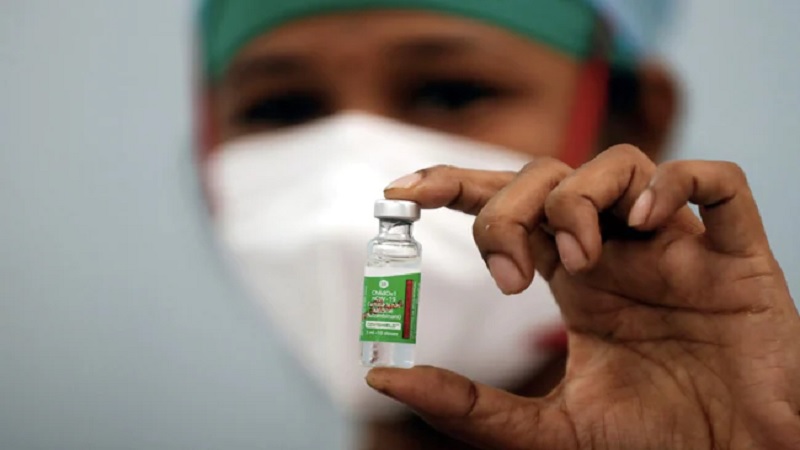 Image Courtesy:ndtv.com
Image Courtesy:ndtv.com
The Central Government has told the Supreme Court that the vaccination policy conforms to the mandate of Article 14 and Article 21 of the Constitution of India, and therefore requires no interference by the judiciary.
On April 30, the Supreme Court had asked the Centre to revisit its vaccine policy so that it withstands scrutiny of Articles 14 and Article 21 of the Constitution. The three-judge bench of Justices DY Chandrachud, L Nageswara Rao and S Ravindra Bhat prima facie held that the Centre’s vaccine policy violated right to health, and suggested centralising procurement and decentralising distribution.
Based on a LiveLaw report, the Centre has now stated that its executive policy decisions have been taken in the most scientific manner, in consultation with experts in the field, keeping in mind the health and well-being of all citizens.
Currently, state governments and the Centre have two different prices for the vaccine. The court had held that compelling the state governments to negotiate with manufacturers on the ground of promoting competition and making it attractive for new vaccine manufacturers, will result in a serious detriment to those in the age group of 18 to 44 years.
But Bar & Bench reports that the Central Government has defended this policy by stating that, “Differential pricing is based on the concept of creating an incentivised demand for the private vaccine manufacturers in order to instil a competitive market resulting in higher production of vaccines and market driven affordable prices for the same. This will also attract offshore vaccine manufacturers to enter the country. This will result in increased availability of vaccine.”
The Centre has also submitted that under the current strategy, the state governments have to procure vaccines for the age group 18-44 years, and that the Central Government has, by “conducting informal consultations with the vaccine manufacturers”, ensured that the prices of vaccine is uniform across all states so as to avoid any disparity resulting from one state buying the vaccine at a higher price than the other.
According to Bar & Bench, the Centre has also added in its affidavit that the Supreme Court must let the executive perform its function independently. It reads, “In the context of a global pandemic, where the response and strategy of the nation is completely driven by expert medical and scientific opinion, there is even little room for judicial interference. Any overzealous, though well-meaning judicial intervention may lead to unforeseen and unintended consequences, in absence of any expert advice or administrative experience, leaving the doctors, scientists, experts and executive very little room to find innovative solutions on the go.”
Further, the Supreme Court has also been told that the different price factor will not have an impact on Indians as all State governments have decided to roll out vaccines free of cost for the age group of 18-44 years. “Thus, while it is ensured that the two vaccine manufacturers are not unduly enriched from out of public money, the citizens are not supposed to make any payment for getting both dosestee of the vaccine,” reads the affidavit as per LiveLaw.
This affidavit will be perused by the Supreme Court today, on May 10.
Related:
Vaccine policy detrimental to right to health; SC asks Centre to revise
SC sets up National Task Force for oxygen allocation across all States, UTs